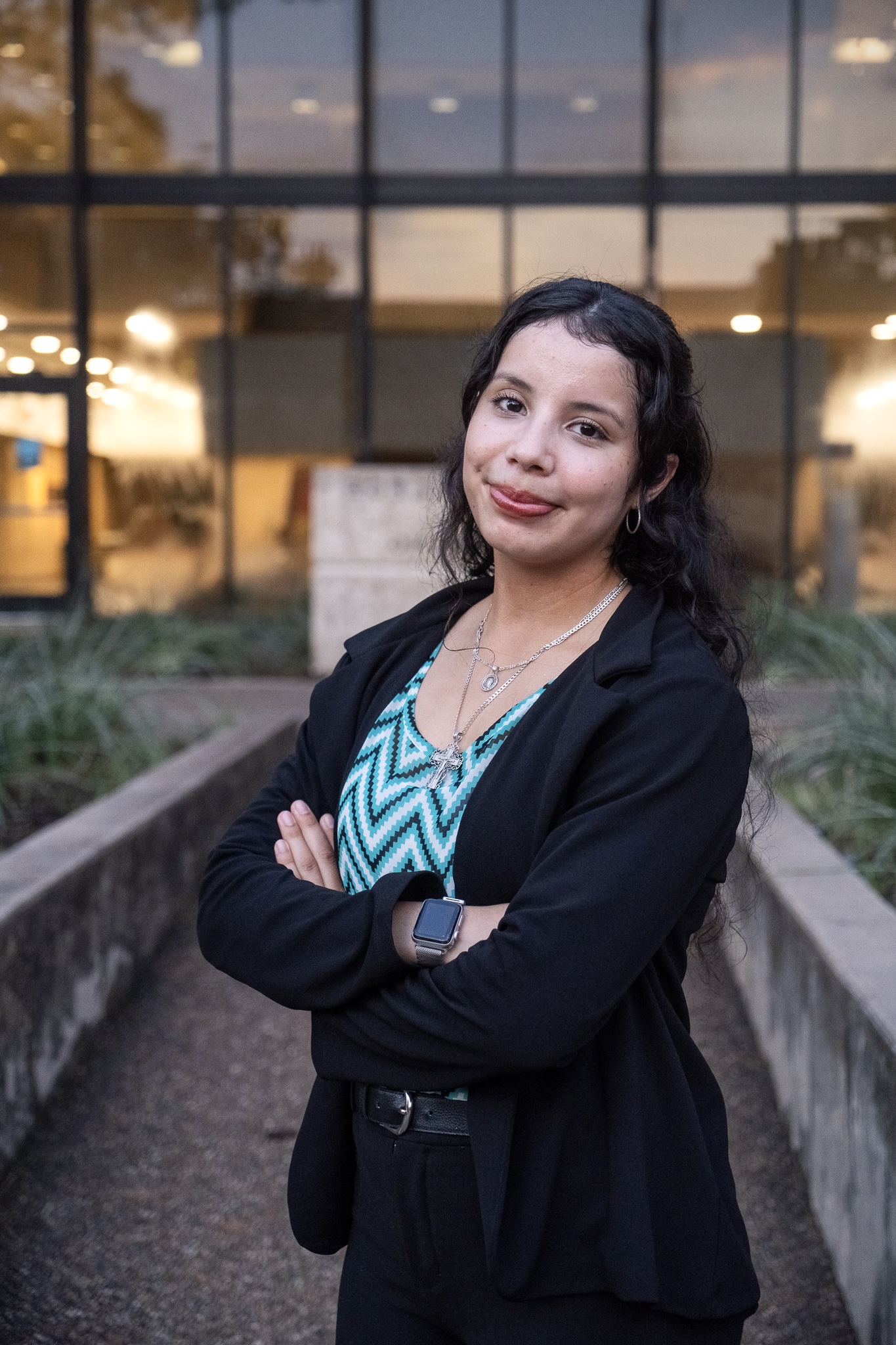Turning Research into Action: How Students Can Lead Sustainability Efforts
As someone deeply invested in the environmental side of engineering, sustainability has always been a guiding principle in my academic and personal journey. My involvement in research on microplastics and my work with the Galveston Bay Foundation on a restoration site at Armand Bayou have given me firsthand insight into the critical need for environmental stewardship. These experiences have reinforced my belief that we can implement more sustainable practices here on campus in various ways.
One of the most eye-opening experiences in my research was discovering the widespread presence of microplastics in marine life. While analyzing samples from local waters, I found microplastics in the stomachs of many sea animals, including fish and shellfish. Seeing the direct impact of plastic pollution on marine ecosystems was both heartbreaking and motivating. It reinforced the urgent need to reduce plastic waste, not just through individual actions but through systemic changes in waste management and consumption habits. I am also in the process of joining a program at my University, “Engineers Without Borders,” where we develop sustainable solutions for countries that do not have access to clean water.
My research involved collecting water and biological samples from various sites, including areas close to industrial discharge points and urban runoff zones. By using filtration techniques and microscopy, I was able to identify and quantify microplastic contamination in these environments. Tiny plastic fragments were not just floating in the water but were being
ingested by marine organisms at an alarming rate. The consequences of this pollution extend beyond marine life; microplastics ultimately enter the human food chain, posing potential health risks. This research solidified my commitment to advocating for policies that reduce plastic pollution and improve waste management systems.
Another shocking revelation came when I investigated campus recycling programs. During my research, I discovered that many schools, including some universities, do not actually recycle as effectively as they claim. I learned that, in many cases, recyclables end up in landfills because sorting and processing them is considered too much work. This realization made me question the integrity of sustainability initiatives and inspired me to advocate for more transparent and efficient recycling systems on campus.
Many institutions promote recycling as a major sustainability initiative, but my research showed that logistical issues such as contamination of recyclables, lack of sorting infrastructure, and insufficient manpower often result in recyclables being discarded as general waste. This cycle of misinformation leads students to believe they are making an impact when, in reality, their efforts might be in vain. Addressing this issue requires not just better facilities but also a change in mindset. Students, faculty, and administrators need to be educated on how to properly recycle and hold institutions accountable for following through on their sustainability promises.
One specific experience that stands out is the university’s installation of water fountains designed to reduce plastic waste. This initiative has already contributed to a significant reduction in single-use plastic bottles, showing that small but meaningful changes can make a big difference. However, there is still much room for improvement. For example, implementing
composting programs, increasing the availability of recycling bins, and encouraging the use of reusable materials in dining facilities could greatly enhance our campus’s sustainability efforts.
Additionally, much of this work can be student-led, allowing individuals to gain valuable research experience while directly contributing to environmental solutions. By engaging students in sustainability projects, universities can foster a culture of hands-on learning that benefits both academia and the environment. Programs that encourage student participation in research, such as microplastic analysis, waste auditing, and energy monitoring, can provide real-world skills while addressing pressing sustainability challenges on campus. That is how I became so passionate about sustainability.
Another unique way to enhance sustainability on campus is by reducing electricity consumption through smart energy systems. Universities consume massive amounts of electricity for lighting, heating, cooling, and powering devices. Implementing motion-sensor lighting in classrooms and dorms, using AI-driven energy management systems, and encouraging students to unplug devices when not in use can lead to substantial reductions in energy waste.
To inspire change, I believe it is essential to engage others by demonstrating the tangible benefits of sustainability. One way I have contributed to this effort is through my research on microplastics, which highlights the long-term consequences of plastic pollution. Sharing these findings with peers, faculty, and community members helps raise awareness and fosters discussions on potential solutions.
My work with the Galveston Bay Foundation has also shown me the importance of hands-on environmental work. Restoration projects, such as those at Armand Bayou, demonstrate how collaborative efforts can rehabilitate ecosystems and support biodiversity. If
similar hands-on projects were integrated into university programs, students would gain practical experience while actively contributing to sustainability efforts.
My background in environmental engineering research allows me to approach sustainability from both a scientific and practical standpoint. Through my research and advocacy, I aim to bridge the gap between knowledge and action, ensuring that scientific findings translate into real-world solutions.
By sharing my experiences, I hope to inspire others to take an active role in sustainability efforts on campus and beyond. Whether through research, policy advocacy, or simple lifestyle changes, every individual has the power to make a difference. By working together, we can create a more sustainable future, starting with the choices we make on campus today.


